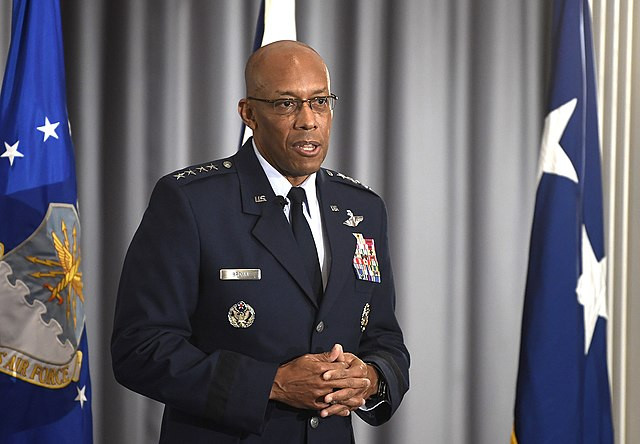In a crucial update on Middle Eastern tensions, Air Force General C.Q. Brown, Chairman of the Joint Chiefs of Staff, has indicated that the immediate risk of a broader regional war has somewhat diminished following the recent exchange of fire between Israel and Lebanon's Hezbollah. However, he highlighted that Iran continues to pose a significant threat, with its actions likely to influence the broader stability of the region.
General Brown's comments come after a high-stakes visit to the Middle East, which included a visit to Israel just hours after a major conflict erupted. On August 6, Hezbollah launched a significant barrage of rockets and drones at Israeli targets. The Israel Defense Forces (IDF) responded by striking numerous Hezbollah rocket launchers in Lebanon, marking one of the most intense clashes in over ten months.
The confrontation between the two groups, which erupted in the wake of ongoing border skirmishes, ended with limited damage in Israel and no immediate escalation of the conflict. "The immediate risk of a broader war has eased somewhat," Brown stated during an interview with Reuters, reflecting on the aftermath of the latest clash. His assessment is grounded in the fact that, despite the intensity of the recent exchanges, both sides have refrained from further retaliation, for now.
However, the situation remains volatile. The general pointed out that Hezbollah's aggression is part of a larger pattern of regional instability. Iran, which has been vocal about its displeasure over the killing of Hamas leader Ismail Haniyeh in Tehran last month, is a significant player in this complex web of conflicts. Iran has hinted at a possible retaliatory strike against Israel, and its response could dictate whether the current situation devolves into a broader conflict.
General Brown, who had just concluded a three-day visit to the Middle East, including meetings with Israeli Defense Minister Yoav Gallant and Chief of the General Staff Lieutenant General Herzi Halevi, also emphasized the broader regional risks. He noted that Iran's militant allies, including groups in Iraq, Syria, and Jordan, have previously targeted U.S. troops, further complicating the security landscape. Additionally, Yemen's Houthis, who have launched attacks on Red Sea shipping and even directed drones at Israel, remain a "wild card" in this volatile environment.
The U.S. military's posture in the region has been strengthened in response to these threats. General Brown highlighted the decision to maintain two aircraft carrier strike groups and an extra squadron of F-22 fighter jets in the Middle East. This buildup is aimed at enhancing the U.S.'s ability to defend its allies and interests in the region.
Despite the current lull in direct conflict, the broader geopolitical ramifications remain significant. Iran's potential actions and the responses from various militant groups could still trigger a more extensive conflict. "What happens next largely depends on Iran's decisions and how they choose to respond," Brown said, underlining the interconnected nature of these regional tensions.
In the context of ongoing conflict, particularly the war in Gaza that has now spanned 11 months, the situation in the Middle East remains fragile. The Gaza conflict, which began on October 7, 2023, has resulted in widespread devastation, with significant humanitarian impacts on the civilian population. This ongoing war has exacerbated regional tensions, contributing to the complex dynamics that General Brown and other military officials are closely monitoring.




